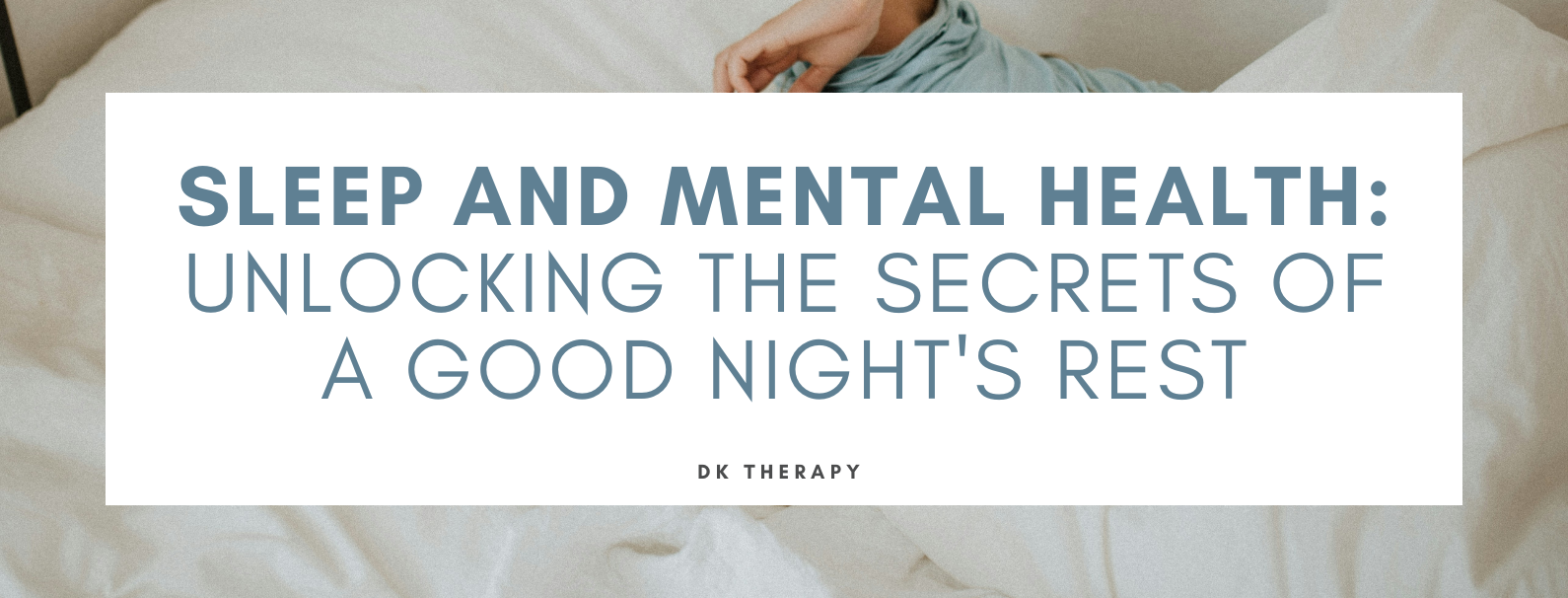
Due to the hustle and bustle of everyday life, we often forget how important restful sleep can be for our mental health. While we prioritize completing tasks, meeting deadlines, and keeping commitments, we tend to neglect our need for quality rest. However, understanding the relationship between healthy sleep and mental well-being can help make way for a healthier and happier life all around.
In this article, we’ll take a look at the important connection between rest and mental health, as well as explore why prioritizing the quality of your sleep is crucial for your overall well-being.
 The Importance of Adequate Sleep
The Importance of Adequate Sleep
Sleep isn’t just a period of inactivity that helps us decompress from a busy day. It’s a vital process when it comes to the maintenance of physical, mental, and emotional health. During sleep, the body undergoes critical restorative processes, such as tissue repair, hormone regulation, and memory storage. On top of that, the brain uses sleep to perform essential functions like clearing away toxins, reviewing important information, and rejuvenating cognitive processes.
Poor Sleep and Mental Health Concerns
Research shows that sleep deprivation or poor sleep quality is linked to an array of mental health issues, such as anxiety disorders, depression, and bipolar disorders. Though poor sleep doesn’t necessarily cause these conditions, it can worsen symptoms and make it more difficult for a person to manage his or her disorders. This is because when sleep is compromised, the brain’s ability to regulate emotions, process information, and cope with stress becomes impaired.
Part of what makes the relationship between sleep and mental health even more complex is how the two impact each other. Mental health disorders can disrupt sleep patterns, which leads to insomnia, nightmares, or restless sleep. On the other hand, though, poor sleep can worsen existing mental health issues, which creates a negative spiral of symptoms. Breaking free from this type of cycle requires addressing both sleep disturbances and mental health concerns simultaneously.
Tips for Improving Sleep and Mental Well-being
When we prioritize high-quality sleep, we can significantly improve our mental well-being as well as our resilience to stress. Adequate sleep enhances cognitive function, stress management skills, and emotional processing, which can enable better navigation of life’s ups and downs. Additionally, a well-rested mind is more capable of making rational decisions and maintaining stable mood levels.
Let’s go over a few steps you can take to improve your sleep quality, and by extension, your sense of mental well-being.
Maintain a Schedule
Do your best to maintain a regular sleep-wake cycle. Go to bed at the same time each night and wake up at the same time in the morning, even on weekends. This will help your body regulate its internal clock.
Enhance Your Environment
Make sure that your sleeping area is set up in a way that encourages high-quality sleep. Minimize light, noise, and electronic distractions in your bedroom. Keep your area clean and maintain a temperature that’s comfortable to sleep in.
Practice Relaxation Techniques
Incorporate relaxation exercises into your before-bed routine, such as deep breathing, meditation, and progressive muscle relaxation. Consider taking a warm bath or shower before bedtime and enjoy a sleep-inducing cup of herbal tea.
Limit Stimulation Before Bed
Avoid stimulating substances like caffeine and nicotine several hours before you’re scheduled to go to bed. Further, take a break from screens (phones, computers, TVs) at least one hour before you turn in for the night. Giving yourself an hour to wind down at the end of the day will help promote better sleep quality.
It can be easy to overlook the role that sleep plays in nurturing our mental health. However, by taking time to recognize the connection between sleep and mental well-being, we can take steps to prioritize rest and reap the benefits it offers.
If you’re struggling and you’d like to try therapy, consider reaching out us at to DK Therapy. Schedule an appointment with our office and connect with one of our caring, experienced counselors.




